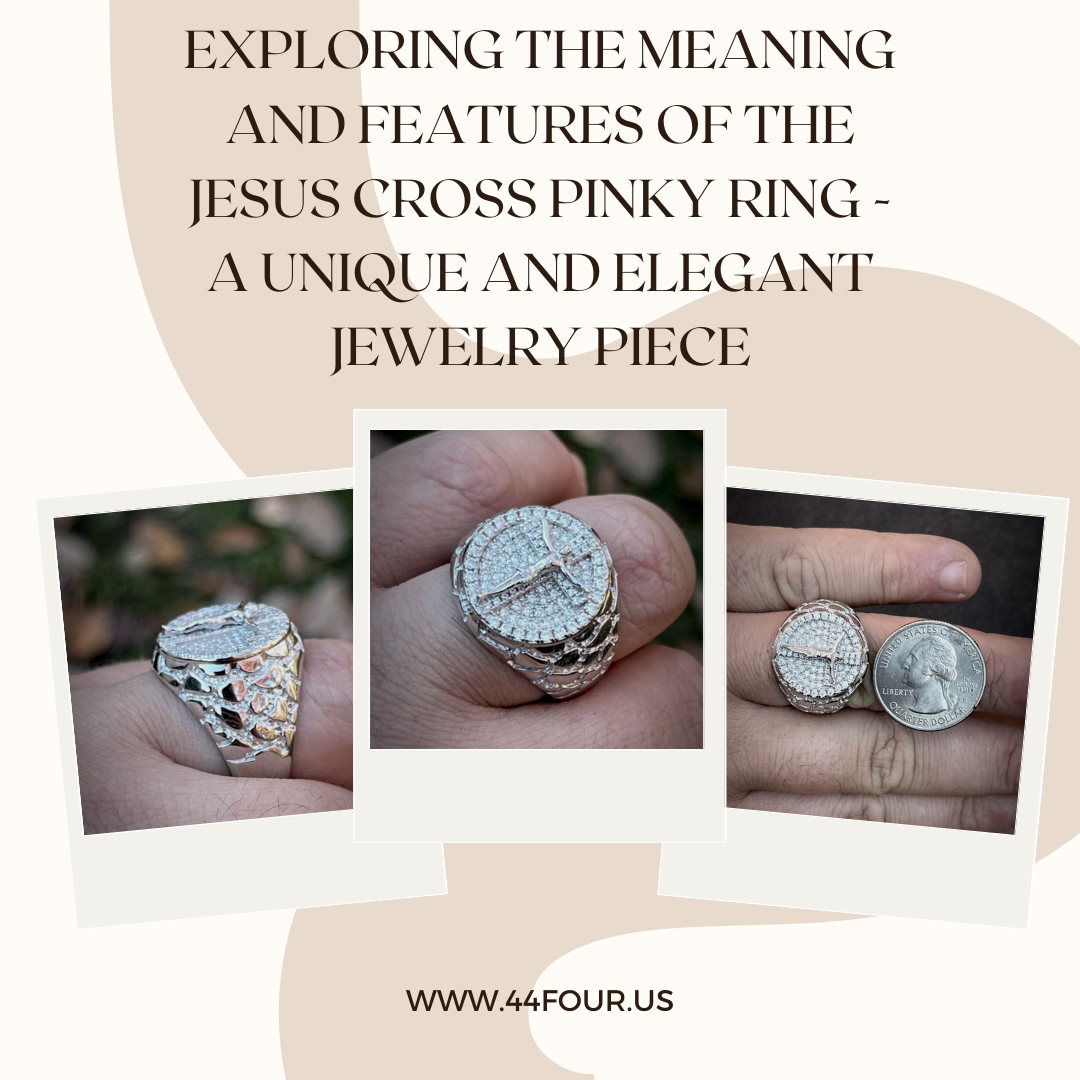The Absence Of Adornment: Exploring The Significance Of Jesus’ Jewelry-Free Life
The Absence of Adornment: Exploring the Significance of Jesus’ Jewelry-Free Life
Related Articles: The Absence of Adornment: Exploring the Significance of Jesus’ Jewelry-Free Life
Introduction
In this auspicious occasion, we are delighted to delve into the intriguing topic related to The Absence of Adornment: Exploring the Significance of Jesus’ Jewelry-Free Life. Let’s weave interesting information and offer fresh perspectives to the readers.
Table of Content
The Absence of Adornment: Exploring the Significance of Jesus’ Jewelry-Free Life

The life and teachings of Jesus Christ have captivated humanity for centuries, inspiring countless individuals to follow his path and adhere to his principles. One intriguing aspect of his life, often overlooked, is the absence of any mention of him wearing jewelry. This seemingly simple detail holds profound significance, offering valuable insights into his values, his message, and the broader context of his historical and cultural environment.
Historical and Cultural Context:
To fully understand the significance of Jesus’ choice, it is essential to consider the historical and cultural context of his life. First-century Palestine was a melting pot of diverse cultures and social classes, each with its own customs and traditions regarding adornment.
- Roman Influence: The Roman Empire, with its vast wealth and ostentatious displays of power, exerted a considerable influence on the region. Roman citizens, particularly the elite, often adorned themselves with elaborate jewelry, signifying status, wealth, and power.
- Jewish Traditions: Jewish culture, however, held a more nuanced perspective on adornment. While the Torah does not explicitly prohibit jewelry, it cautions against excessive ornamentation and encourages modesty. The emphasis was on inner qualities and spiritual devotion rather than external displays of wealth or social status.
Jesus’ Message of Simplicity and Humility:
Jesus’ life and teachings were deeply rooted in the principles of simplicity, humility, and service to others. He actively challenged the materialistic values of his time, emphasizing the importance of inner transformation and spiritual growth over external possessions. The absence of jewelry in his life can be interpreted as a symbolic rejection of the worldly values of wealth and social status, aligning with his message of focusing on the spiritual over the material.
Focus on the Inner Life:
By choosing not to wear jewelry, Jesus could be highlighting the importance of focusing on the inner life. He emphasized the significance of developing virtues like love, compassion, and forgiveness, qualities that transcend material possessions. His life exemplified the principle that true worth and beauty lie within, not in external adornments.
The Significance of the Cross:
The cross, a symbol of Jesus’ sacrifice and resurrection, is arguably the most powerful and significant symbol in Christianity. It is a stark reminder of his suffering and the immense love he had for humanity. The absence of jewelry in his life further emphasizes the simplicity and selflessness of his message. His focus was not on worldly possessions or adornments but on the profound spiritual truths he sought to convey.
The Example of the Apostles:
The early disciples of Jesus, often depicted as humble and dedicated followers, also seem to have embraced a similar simplicity. While the Bible does not explicitly mention their attire, the emphasis on their dedication to spreading the gospel and living in accordance with Jesus’ teachings suggests a focus on the inner life and a rejection of worldly distractions, including excessive adornment.
Jewelry and the Concept of Idolatry:
In the Old Testament, the Israelites were forbidden from making idols or wearing jewelry with images of deities. This prohibition reflected the belief that idols were a form of idolatry, a transgression against the One True God. While Jesus’ teachings were rooted in the Old Testament, he also emphasized the importance of loving God with all one’s heart, mind, and soul. The absence of jewelry could be interpreted as a symbolic rejection of any form of idolatry, including the potential for material possessions to become objects of worship.
The Importance of Personal Interpretation:
It is important to acknowledge that the absence of jewelry in Jesus’ life is not explicitly stated in the Bible. This detail is inferred from the broader context of his life, teachings, and the cultural environment he lived in. The interpretation of this detail is ultimately a matter of personal faith and understanding.
FAQs
Q: Why didn’t Jesus wear jewelry?
A: While the Bible does not explicitly state why Jesus didn’t wear jewelry, his life and teachings suggest a deliberate choice to reject the materialistic values of his time and focus on inner transformation and spiritual growth.
Q: Did Jesus’ disciples wear jewelry?
A: The Bible does not explicitly mention whether Jesus’ disciples wore jewelry. However, the emphasis on their dedication to spreading the gospel and living in accordance with Jesus’ teachings suggests a focus on the inner life and a rejection of worldly distractions, including excessive adornment.
Q: What does the absence of jewelry symbolize in Christianity?
A: The absence of jewelry in Jesus’ life can be interpreted as a symbolic rejection of the worldly values of wealth and social status, a focus on the inner life, and a rejection of idolatry.
Q: Is it wrong to wear jewelry as a Christian?
A: The Bible does not explicitly prohibit Christians from wearing jewelry. However, it emphasizes the importance of focusing on inner qualities and spiritual growth, rather than external displays of wealth or social status. The decision of whether or not to wear jewelry is ultimately a personal one.
Tips
- Reflect on the values of simplicity and humility: Consider how these values can be incorporated into your own life, regardless of your personal choices regarding adornment.
- Focus on inner transformation and spiritual growth: Seek to cultivate virtues like love, compassion, and forgiveness, which are more enduring than material possessions.
- Challenge materialistic values: Be mindful of the influence of consumerism and the temptation to equate happiness with material possessions.
- Embrace the power of symbolism: Consider the symbolism of the cross and its message of sacrifice and love.
Conclusion
The absence of jewelry in Jesus’ life, while seemingly a small detail, offers valuable insights into his values, his message, and the broader context of his historical and cultural environment. By choosing not to wear jewelry, Jesus may have been challenging the materialistic values of his time, emphasizing the importance of inner transformation and spiritual growth, and rejecting the potential for idolatry. Ultimately, the decision of whether or not to wear jewelry is a personal one, but the example of Jesus reminds us to focus on the true essence of our being and to live lives that reflect the values of simplicity, humility, and love.








Closure
Thus, we hope this article has provided valuable insights into The Absence of Adornment: Exploring the Significance of Jesus’ Jewelry-Free Life. We thank you for taking the time to read this article. See you in our next article!
You may also like
Recent Posts
- The Enduring Appeal Of XP Jewelry: A Timeless Symbol Of Achievement
- A Global Tapestry Of Adornment: Exploring World Collections Of Jewelry
- The Evolution Of A Brand: Understanding The Name Change Of Lola Rose Jewellery
- Navigating The UK’s Jewelry Wholesale Landscape: A Comprehensive Guide
- The Allure Of Effy Jewelry: Unveiling The Reasons Behind Its Premium Pricing
- The Enduring Appeal Of Gold Jewelry: A Timeless Investment
- The Art Of Harmony: Elevating Your Style Through Accessory Coordination
- The Comprehensive Guide To Wholesale Jewelry Supplies Catalogs: A Treasure Trove For Jewelry Makers And Businesses
Leave a Reply